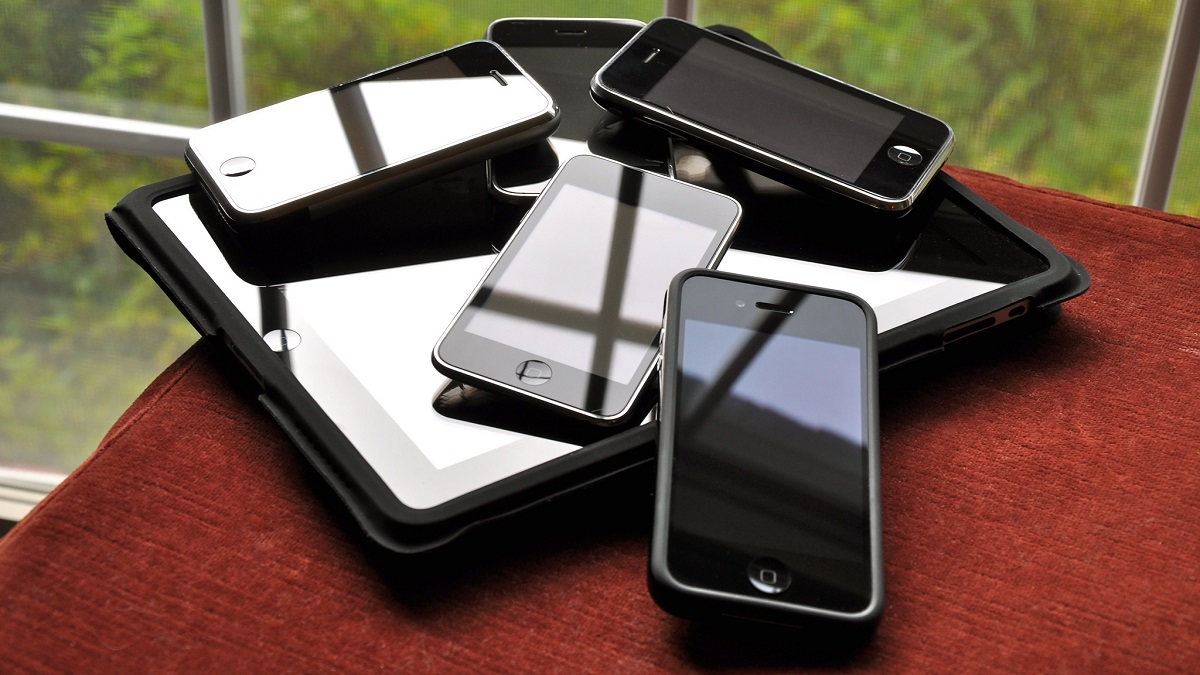
The claims that Apple Inc. makes about its iOS and iPhones: “What happens on an iPhone, stays on the iPhone,” might not be accurate. A new study claims iPhone apps tend to violate your privacy just as often as Android apps do.
Data collection, exfiltration, and sharing are common concerns across Google Android and Apple iOS smartphone operating systems. With Android, users can at least opt for a Custom ROM to limit data collection. But overall, smartphones equal consenting to data collection, willingly or otherwise.
“Are iPhones Really Better for Privacy?” research paper fails to conclusively prove the hypothesis:
An academic paper titled “Are iPhones Really Better for Privacy?” offers some concerning facets of Apple Inc., its iOS App Store ecosystem, and the Apple iPhone.
Presented by researchers from the University of Oxford, the paper mentions: “Overall, we find that neither platform is clearly better than the other for privacy across the dimensions we studied.”
iPhone apps no better for privacy than Android, Oxford study finds https://t.co/hdmpIyi7IW
— anselmoS (@anselmonadir) October 12, 2021
“While it has been argued that the choice of smartphone architecture might protect user privacy, no clear winner between iOS and Android emerges from our analysis. Data sharing for tracking purposes was common on both platforms.”
The researchers claim the concerning conclusion probably because of the way smartphone Operating Systems, and their App ecosystem, function. The report indicated that 79 percent of apps had at least one tracking library.
Interesting
Not really consistent with PR main line of @Apple and @tim_cook on #Apple being better on privacy…As IOS and #Iphone addict customer, I will read with great interest, so should the @EU_Commission College which has 100% iPhones
market share @ThierryBreton https://t.co/oU1mPIqutc
— Umberto GAMBINI
(@UGambini) October 12, 2021
In the majority of cases, it was Apple’s own SKADNetwork. This tracker tracks which ads a user clicks on. Interestingly, Google has an overwhelming presence in the Apple iOS App ecosystem.
About two-thirds of iOS apps additionally ran Google’s AdMob ad tracking library. About 58 percent ran Google Firebase. Facebook had a relatively low presence, with only 26 percent of the 12,000 randomly selected free apps, having a Facebook tracker.
Apple Inc. is making ad privacy a premium both to iPhone apps users and advertisers?
Apple Inc. introduced App Tracking Transparency (ATT) late last year. The feature has given iPhone and iPad users the ability to deny tracking across the apps and services working on the device.
At its core, the ATT feature allows iPhone users to block the temporary advertising IDs. While this may sound promising, the report implies Apple Inc. is basically jacking up the value of ad tracking on an iPhone:
“Apple’s crackdown on Ad ID use could be interpreted as an attempt to divert revenue from Google and other advertising providers, and motivate the use of alternative monetization models — which are more lucrative for Apple.”
When it comes to privacy, the maker of the iPhone is presenting itself as a good actor. But is that actually the case? https://t.co/OO0aPNSiwg Via @WIREDUK
— WIRED (@WIRED) October 12, 2021
“Apple has arguably placed a larger emphasis on privacy, seeking to gain a competitive advantage by appealing to privacy-concerned consumers.”
An overwhelming majority of iPhone users deny tracking to apps. This means Apple Inc. could gain substantially more revenue by offering alternative tracking and ad distribution services.
Are iPhones Really Better for Privacy? Comparative Study of iOS and Android Apps
The Answer is No!
Study by the Department of Computer Science at the University of Oxford#Privacy #GDPR #iOS #iPhone #Apple #Android #Google #Alphabet #Facebook #FBhttps://t.co/dQKd6xphce pic.twitter.com/iKnIAHLkZp
— Sarah (@SarahMya2000) October 12, 2021
Incidentally, Apple Inc. has made some substantial changes since iOS 14.5. The company has mandated opt-in to tracking and app privacy labels are mandatory on iPhones.
The research team has claimed that further research is needed to ascertain the impact of these changes. Moreover, Apple and Google are currently under immense pressure to improve user privacy and security.





